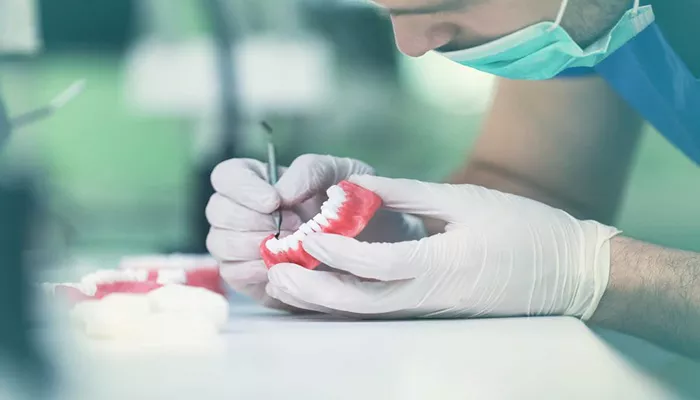Dental implants have become a popular solution for replacing missing teeth, offering a durable and aesthetically pleasing alternative to dentures and bridges. However, like any surgical procedure, they come with inherent risks and potential complications. This article aims to provide a comprehensive overview of the risks associated with dental implants, helping patients make informed decisions about their oral health.
What Are Dental Implants?
Dental implants consist of titanium posts that are surgically inserted into the jawbone to serve as artificial tooth roots.
Once integrated with the bone, these implants provide a stable foundation for replacement teeth (crowns). The procedure has a high success rate, but understanding the risks involved is crucial for prospective patients.
Common Risks Associated with Dental Implants
1. Infection
Infection is one of the most prevalent risks associated with dental implant surgery. It can occur at the surgical site or in the surrounding gum tissue. Symptoms may include:
- Pain
- Swelling
- Redness
- Pus formation
If an infection develops, it can lead to implant failure and may require additional treatments, including antibiotics or even surgical intervention to remove the implant.
2. Nerve Damage
During the placement of dental implants, there is a risk of damaging nearby nerves. This can result in:
Numbness or tingling in the lips, tongue, or chin
Persistent pain in the affected area
While nerve damage is often temporary, it can occasionally lead to long-term discomfort2510. Dentists typically use imaging techniques like X-rays to avoid nerve locations during surgery.
3. Implant Failure
Although dental implants have a high success rate, failure can occur. Factors contributing to implant failure include:
- Poor bone density
- Inadequate healing time before placing pressure on the implant
- Infection at the implant site
If an implant fails to integrate with the jawbone (a process known as osseointegration), it may need to be removed and replaced after allowing time for healing.
4. Sinus Problems
For implants placed in the upper jaw, there is a risk of sinus complications. If an implant protrudes into the sinus cavity, it can cause:
- Sinus infections
- Pain and discomfort in the sinus area
This risk underscores the importance of thorough pre-surgical evaluation by a qualified dentist.
5. Gum Recession
Gum recession can occur around dental implants, exposing metal components and increasing susceptibility to infection.
Factors that contribute to gum recession include:
- Improper placement of the implant
- Poor oral hygiene practices
Maintaining good oral hygiene is essential to prevent gum issues post-surgery.
Additional Risks And Complications
6. Allergic Reactions
Some patients may experience allergic reactions to materials used in dental implants, such as titanium or porcelain.
Symptoms can range from mild irritation to more severe reactions requiring medical attention.
7. Bone Loss
If an implant fails or becomes infected, it can lead to bone loss in the jaw area. This not only jeopardizes the stability of the existing implant but also complicates future dental procedures.
8. Peri-implantitis
Peri-implantitis is an inflammatory condition affecting the tissues around an implant. It is caused by bacterial infection and can lead to:
- Bone loss around the implant
- Implant mobility
Early detection and treatment are crucial for managing peri-implantitis effectively.
Preventing Risks Associated with Dental Implants
While risks cannot be entirely eliminated, several strategies can help minimize them:
Choose an Experienced Dentist: Selecting a qualified and experienced dental professional is paramount. They should have a track record of successful implant placements.
Pre-Surgical Assessment: A thorough examination, including imaging studies like X-rays or CT scans, helps assess bone density and identify any anatomical concerns.
Maintain Good Oral Hygiene: Following proper oral hygiene practices before and after surgery reduces the risk of infections.
Follow Post-operative Instructions: Adhering to your dentist’s guidelines regarding care after surgery is essential for healing and minimizing complications.
Regular Check-ups: Schedule regular follow-up appointments with your dentist to monitor your implants’ health and address any issues early on.
Conclusion
Dental implants offer significant benefits for individuals seeking to restore their smiles and improve their quality of life.
However, understanding the associated risks is crucial for making informed decisions about this treatment option. By choosing a qualified dentist and following preventive measures, patients can mitigate many potential complications related to dental implants.
In summary, while dental implants are generally safe and effective, being aware of their risks—such as infection, nerve damage, sinus problems, and peri-implantitis—can help patients navigate their options more confidently. Always consult with your dental professional about any concerns or questions regarding dental implants before proceeding with treatment.

